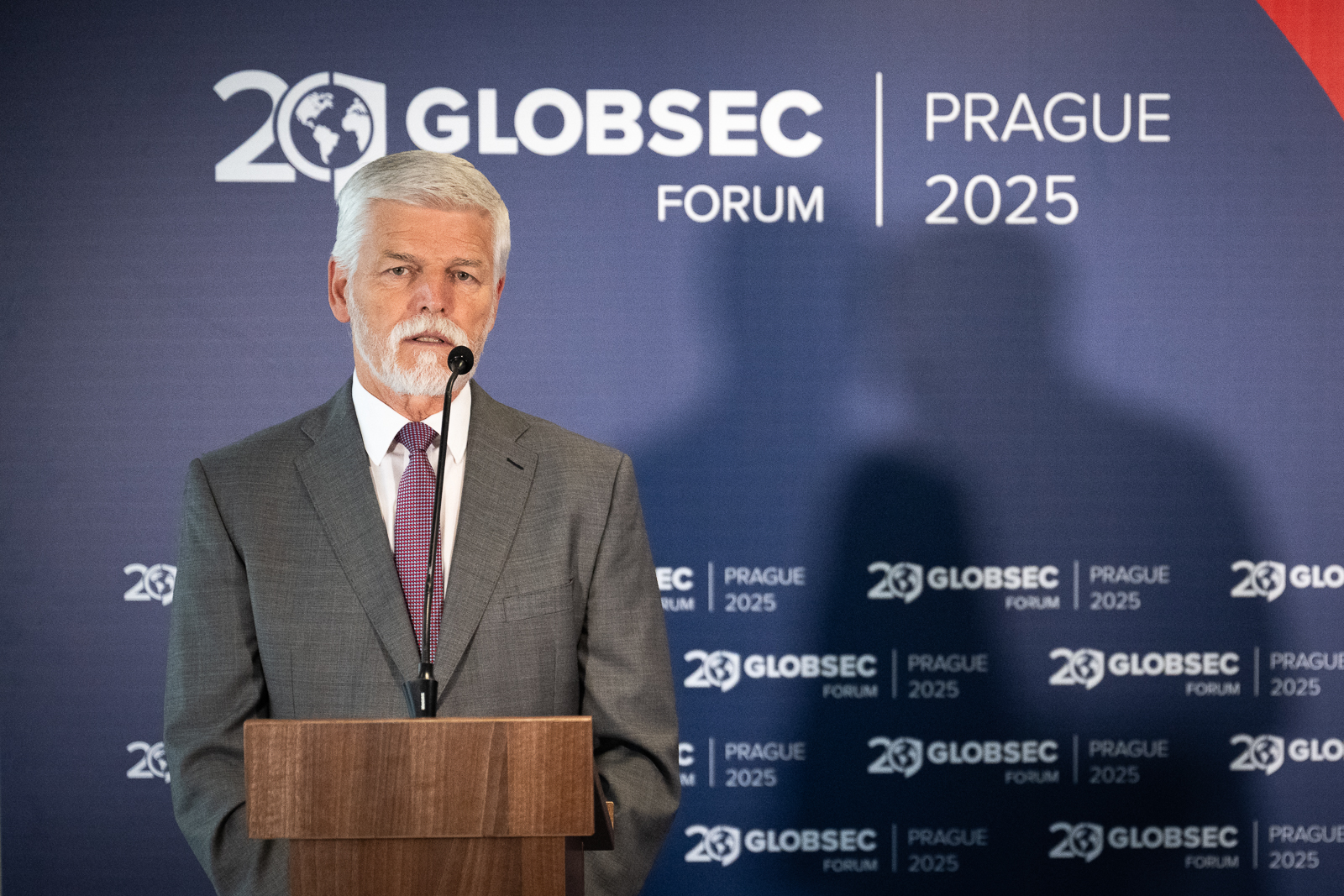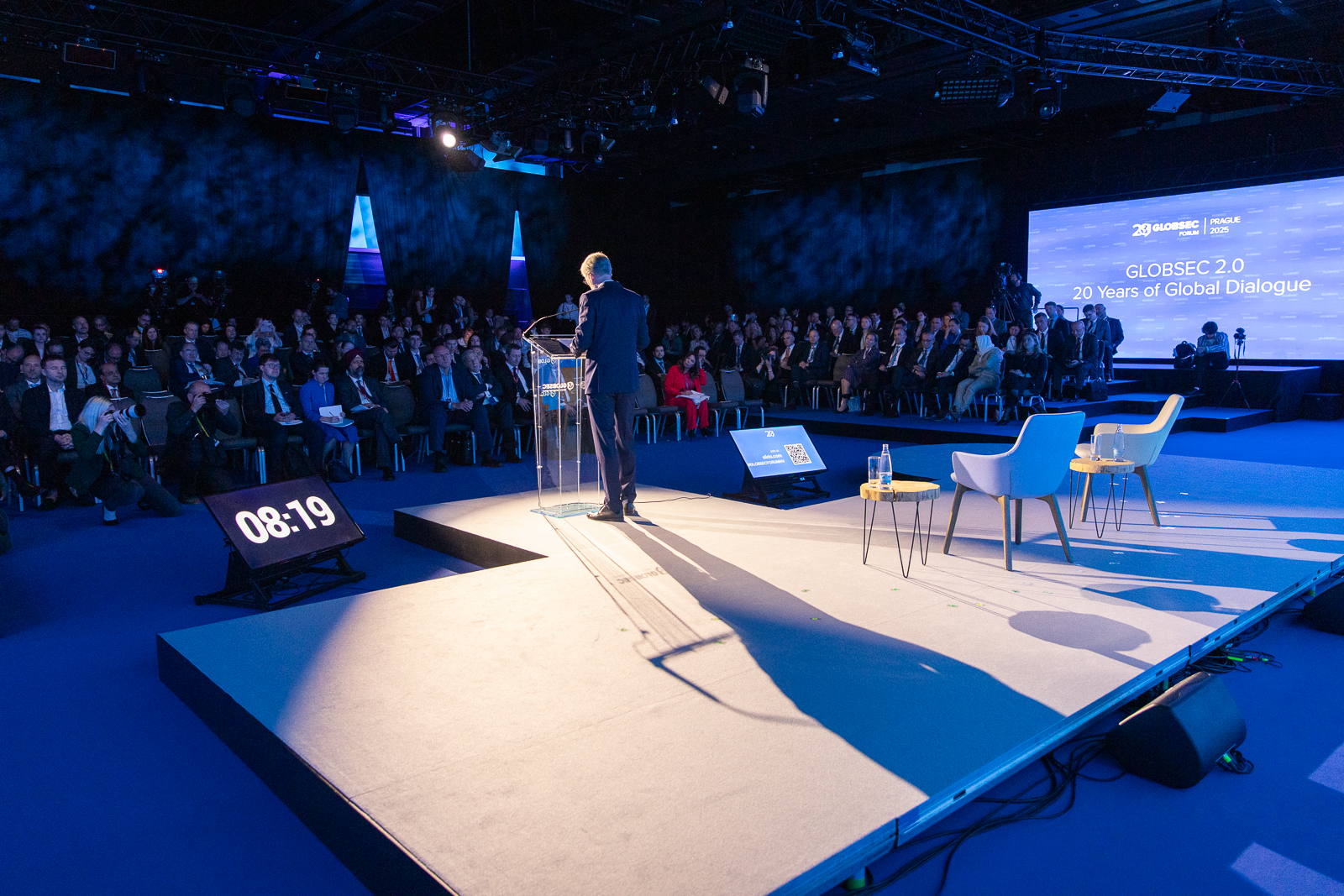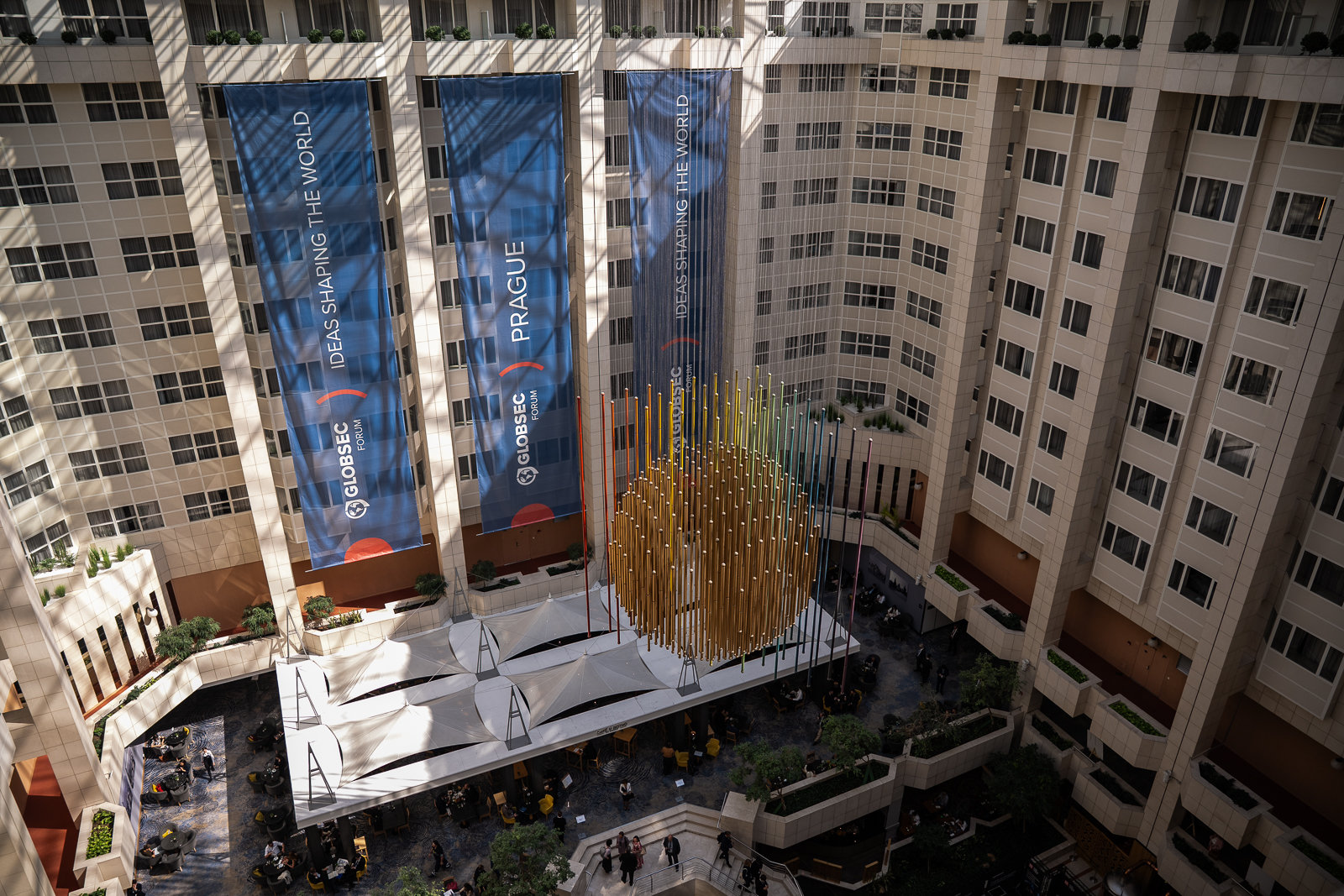Where else to go for the newest developments on defense, security, AI and information threats and much more than the annual Globsec Forum. This year was even a little more special, as the conference celebrated its 20th anniversary and the biggest edition. More than 2000 participants, including politicians, technology, military and defense experts, journalists, analysts gathered in Prague to discuss the future Europe is heading to. Under the topic, “Commanding (in) Chaos: Time for Europe to Step Up”, the organizers seemed to have realized that pressures from outside of the European continent need to be addressed.
The conference was opened by and under the patronage of the Czech president Petr Pavel, along with the Ministry of Foreign Affairs of Czechia. On the opening day, the Ukrainian president Zelensky joined the conference online. He urged partners to realize that Russia will not stop unless the message is clear, through stronger sanctions, political isolation and further distancing of oil and gas business.
Defense strategy of Europe took center stage of the conference, with sometimes more pessimistic outlooks on the preparations for possible foreign attacks. The discussions centered around financing, strategic investments, hybrid threats and figuring out the position Europe needs to take in the current geopolitical arena.

Czech President Petr Pavel, Source: Globsec Forum Media Kit
Information threats and warfare
Information warfare was a combination of words echoing through all different kinds of sessions. What to look out for? AI being the main aid of disinformation and a tool to be misused by malign actors, manipulating the information spaces. With expected elections, for example in October in Czech Republic, there seems to be an aura of (reasonable) paranoia driving action to ensure fair elections, especially after the now famous case of foreign interference and then annulment of the second round of Romanian presidential elections last year in December.
The debate revolved around the correct way to regulate social media platforms, with EU-level regulation such as the Digital Services Act (DSA) but also transnational conversations about the attribution of responsibility on the big tech companies and the responsibility of users, journalists to maintain the information space healthy.

Source: Globsec Forum Media Kit
Resources for Researchers and Policy Makers
During the course of the conference, multiple reports were presented by the Globsec analysts, followed by panels on the respective topics. For example, this one, on building a resilient defense strategy for Europe. It highlights the challenges that arise for a unified defense approach for the continent, when the European Commission needs to balance its competencies with national sovereignty principles among the EU member states.
Globsec Trend report for 2025 was also presented at the conference, showcasing data on public opinion. Focused on the Central Eastern Europe (CEE) region, it highlighted the trends of the region – some more surprising than others.
73% of CEE’s population supports an increase in defense spending, while 82% support NATO membership. A defense-positive outlier is Poland, in which 92% of respondents think that their country should be increasing defense spending. In readiness to defend their country, Poland also topped the list, with 84% of respondents, while Slovakia was the opposite, with only 49% of respondents willing to defend their country in the case of an attack.
An interesting data point is also that 90% of respondents believe that the country should offer clearer crisis guidance. It then poses questions on the current effectiveness of political communication in time, when prevention measures and education can still happen.
The report was conducted by polling agencies in all participating countries, carried out based on surveys carried out between February and March 2025, with a sample of 1000 respondents per country (9 countries in total – Bulgaria, Czechia, Estonia, Hungary, Latvia, Lithuania, Poland, Romania, and Slovakia).

Source: Globsec Forum Media Kit
